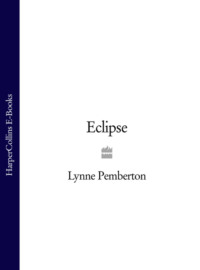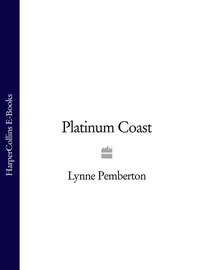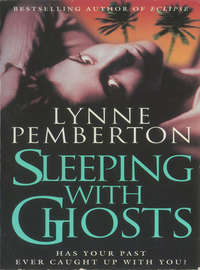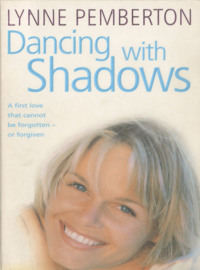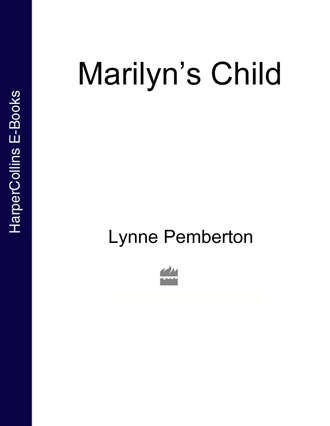
Полная версия
Marilyn’s Child
Mary O’Shea is standing on the second rung of a step-ladder, stacking beans on to an empty shelf. She turns and scowls. ‘It’s yerself, Kate O’Sullivan. I’ve no crack, too bloody busy for prattle, and if it’s Bridget you’ve come to see, she’s busy.’
‘It’s important I speak to her.’
She continues stacking can on top of can. ‘If it’s life-and-death important, you can be telling me.’
‘I’ll take a Mars Bar, thanking you, Mrs O’Shea.’
With a deep sigh Mary O’Shea places the can she’s holding carefully on the shelf and steps down from the ladder.
‘It’s a Mars Bar yer wanting, but I know what yer needing.’
I slap twenty pence on the counter. ‘And what, may I ask, is that, Mrs O’Shea?’
‘Insolent, to be sure, that’s what you are, Kate O’Sullivan. Honest to God, if you were mine I’d give you a good hiding.’
‘Well, since I’m not, give me a Mars Bar instead. And tell me, Mrs O’Shea, ’
.cause it’s curious I am, to know why it is you think I’m insolent?’
If looks could kill I’d be dead on the spot. I stare her out, counting the long black hairs on her chin. I get to six before she says, ‘In my day, children were seen and not heard.’
What is it with this ‘seen and not heard’ or ‘because I say so’ or ‘I’m older so I know better’? Why do grown-ups think kids are stupid, I ask myself, a question I’d considered many times in the past, particularly when I’d heard so much rubbish pouring out of adult mouths.
‘To be sure, I don’t know who you think you are, with all yer feckin airs and graces. Yer a bloody gobshite, Kate O’Sullivan, and I’m thinking that one of these days you’ll be falling flat on your face.’
I’ve a sharp retort ready on the tip of my tongue when Bridget appears on the other side of the counter, red-faced and sweating. She sweats a lot, does Bridget, God love her. I have to admit sometimes, in summer and before her period, it’s really bad. In the past I’d offered her my hard-earned, saved-up-for Lily of the Valley talcum powder. I’d only seen her use it once, when she’d gone out with Sean Connolly for the first time, and then she’d made me mad by using far too much between her legs. Most of it had ended up on the bedroom floor. I’d kept it hidden after that.
Mrs O’Shea hands me a Mars Bar and my change. With a loud grunt she mounts the bottom step of the ladder and continues stacking cans. I can see her ears prick up when she hears Bridget say to me, ‘What time are you meeting the curate?’
Opening the wrapper with my teeth, I say out of the side of my mouth, ‘Ten minutes.’
Bridget’s mouth drops open, and she looks a bit simple. I’ve told her before about her slack jaw but she never listens. ‘Wish it was me. Trouble is, I wouldn’t, couldn’t, for the love of God, say or do a thing fer just gawking at him.’
‘That’s what you do most Saturdays in here, Bridget Costello. I get tired of looking at your sour ugly puss, and you smelling like a bloody midden. Don’t they have hot water up at the orphanage? If I was younger and had the energy I’d take a stick to you. Now stop your crack, git out back and bring me those beans.’
Bridget pulls a face behind the old woman’s back. Mary turns just in time to catch the last of it, and looks ready to kill. I can’t help laughing, which infuriates the old bitch even more. Bridget smirks.
‘You –’ she points at Bridget – ‘git! That is, if you want to keep yer job. Jesus, Mary and Joseph, why can’t an oul’ woman have some peace in her old age? Worked all me life, fer what? To be pestered by young hooligans like you two.’ She steps down from the ladder with a wheeze.
‘Out of me shop and out of me sight, Kate O’Sullivan. Go on off with you, else you’re going to be late for the curate, and for the love of God that won’t do.’
As I step out of the shop on to the main street I spot Maggie Murphy coming out of the post office. Quick as a wink I bend my head, but not quick enough. She sees me and makes a big thing of sticking her nose in the air and turning her face in the opposite direction. I want to laugh and shout to her and anyone else who happens to be listening that her husband is a dirty old bugger who plays with his own sausage in the back yard lavvie, and doesn’t bother to wash his hands before going back to the front shop to serve sausages that are full of rancid pork fat and blood from the tins of cow’s liver to colour them. If folk knew what Mad Murphy put in his sausages they’d never eat another one as long as they lived. In fact, I’m surprised anyone lives very long after eating them.
As I lift the latch on the churchyard gate I still have the lovely taste of chocolate in my mouth. I lick my lips and stuff the Mars Bar wrapper into the back pocket of my skirt. It makes a scrunching sound as I walk briskly up the path towards the sacristy at the rear of the church. After one rap, the door creaks open and he’s there before me, in all his bloody glory, smelling for all the world like lemon sherbet. I wish I could pluck up the courage to ask him about that smell. I promise myself I will one day.
Silently I urge him to speak first. It’s not often I’m tongue-tied – actually, never – so this is a whole new experience for me, this odd feeling of uncertainty, and the shyness that’s giving me a sharp pain in my chest. I’ve been afraid before, many times. I’ve had the fear of God put into me by Mother Thomas and her partner in religious teaching, Mother Paul. Paul is to Thomas what I suppose Himmler was to Hitler. Often I’ve said to Bridget that the pair of them would have been kicked out of the Gestapo for cruelty. But this feeling is different, the butterflies in my stomach are similar, but I don’t have the horrible sinking sensation or the jelly guts I get anticipating what she, or they, may do to me.
With a short nod the curate says, ‘Come in, Kate.’
I step past him into the small vestibule that leads to the sacristy. It’s dark, but then all churches are dark. That’s another thing I don’t understand: if church is supposed to be a place of joyous worship, why did God make his houses so bloody gloomy? The only good reason I can see for going to church is to shelter from the rain, dry off, and hope it has stopped by the time Mass is over.
I follow Father Steele into the sacristy. When he stops in the centre of the room I stop a couple of feet behind.
He says, ‘Wait here a couple of minutes.’
I nod, and watch him leave by a door on the opposite side of the room. A few minutes later he returns. He’s changed from the chasuble soutane, taken off the amice and alb, and is now dressed simply in a plain black soutane. He’s carrying a small leather bag and a set of keys. Without a word, I follow him out the same way we came in. He locks both doors behind us, and we fall into step side by side down the narrow path that rings the cemetery.
‘It’s a grand morning, Kate.’
‘It is that, Father.’
We both sink into silence once more. I sense he’s feeling a bit like me, unsure and uncomfortable. I wonder why I’m feeling this way; to be sure, I didn’t feel so stupid and tongue-tied the first time I met him in church. I suppose it’s because I’m starting his portrait, something I’ve been looking forward to for three weeks. I want to relax, but the more I try the less it seems to work. My heart is beating faster than normal, banging against my chest, a bit like when I’ve been running, only we’re walking at a leisurely pace. Strange, this feeling, very strange. We continue to walk in silence until eventually I take a deep breath and dare to ask, ‘Where are we going, Father?’
Looking straight ahead, the curate says, ‘To my house. I thought it would be peaceful there. Mrs Flanaghan, the cleaner, doesn’t come in Saturdays, else it wouldn’t be quiet at all … no, not at all.’
I smile, I know Biddy Flanaghan. ‘You’re right there, Father. She can talk the hind legs off a donkey.’
He nods. ‘Two donkeys, or maybe four.’
The talk of Biddy breaks the ice and I feel a bit better.
As we walk up to the front door of Coppice Cottage, the curate’s house, I’m thinking what a sad little place it is. This God-like priest should be living in a dazzling white mansion with long windows and sweeping lawns, something similar to Cashel Manor, the grand Georgian house on the edge of the village. It was built by Lord Anderton’s English ancestors; the po-faced Lady Anderton and her snooty daughter still live there when they aren’t floating around fancy parties in London. According to Angela O’Brian, a girl who used to sit next to me in class, the house has twenty bedrooms (she knew because her mother had cleaned them) and six bathrooms. Mrs O’Brian even had to dust the flowers in every room; not wild flowers – nothing so common – but specially imported flowers from far-flung places, like Casablanca and the Caribbean.
I follow Father Steele into the hall – well, you can’t really call it a hall, more like a passage, grey-walled and narrow with stairs leading straight up to the first floor. He leads the way through a stout wooden door; it’s low and he has to duck. The door opens on to a small square room, which looks a bit like my headmaster’s study at school: lots of books and papers stacked unevenly on groaning bookshelves. A single floor-to-ceiling window overlooks a ragged bandage of untidy lawn broken by a small pond and a couple of fruit trees.
The curate stands facing me in front of the fireplace. The black grate behind his feet is shining, like a shilling up a darkie’s bum, as Lizzy Molloy would say, and so are the brass dishes on the mantel; the desk you can see your face in and the window is gleaming like in the Windolene advert. Biddy has been busy. Above the mantelpiece the Sacred Heart of Jesus drips great globs of scarlet blood, and on the opposite wall the Virgin Mary in a long flowing dress is wearing her ever-present benign smile.
‘So, what’s it to be, Kate: do you want me sitting or standing? Sure, it’s awkward I’m feeling either way.’
‘It’ll be no good, Father, the portrait that is, if you don’t relax. You would do better if you sat or stood somewhere you feel most comfortable.’
With his eyes he indicates a chair in the corner of the room. It’s dark brown leather, with a mass of wrinkles like the hide of a buffalo. Assorted newspapers and religious periodicals are stacked on the seat.
Eyes fixed on the chair, he says, ‘To be honest, I’m not comfortable having my portrait painted, by you or anyone else. Father O’Neill assures me you paint like a young Rembrandt, but I don’t believe him. What training have you had? I haven’t even seen any evidence of your work. Last year you did a watercolour of the church – that’s not exactly portraiture, is it?’
I take a deep breath, then say, ‘I’ve done no less than thirty portraits since I was thirteen. I admit the early stuff of Bridget and Lizzy Molloy isn’t headed for the Louvre, but last year Mother Peter and Mother Superior were both over the moon with theirs, and Mr Lilley, my art teacher, says I’ve got exceptional talent. He’s convinced I’ll get a scholarship to Trinity.’
Still gazing at the chair, he says, ‘That chair belonged to my father. Honest to God, a fairer, more hard-working man never walked this country.’
Tentatively I ask, ‘Is he still alive?’
‘No. Cancer got him in the end. He was only forty-five, no age for a man to die. I was thirteen – you know, that funny age when a boy stops needing his mother so much, and becomes badly in need of a father. I was very angry. I don’t recall ever being so angry before or since. My father always wanted me to be a doctor. “Make something of yourself, Declan,” he’d say, “you’ve got the brain for it.” It wasn’t what I wanted to do, but for his sake I went to Trinity, to medical school, and passed out with flying colours. When I was a junior doctor, a young child in my care died. He was eight years old. I remember sitting by the boy’s bed – Liam was his name – willing him back to life. It was then I turned to God. I was twenty-six. I’ll be thirty in September and there hasn’t been a day since when I haven’t thought about the priesthood.’
Shaking his head he mumbles, ‘Sorry for rambling on, don’t know what got into me.’ Looking directly at me, and pressing a finger to his temple, he repeats, ‘Sorry for rambling, nothing to do with you. Now, where was it you wanted me to sit?’
Unsure of what to say, I quietly begin to take my sketch pad and pencils out of my bag. I use my pencil to point. ‘The chair it is then, Father.’
Father Steele gives me an odd smile before crossing the room to sit in his da’s chair. He takes the pile of journals and dumps them on the floor, then sits down, arranging his gown neatly about his feet. He rakes his fingers through his hair and looks into the middle distance. ‘Is this all right?’
I stand back. The light isn’t good, and his pose is all wrong. He looks like he’s straining to do a stiff shit and is having trouble. I imagine saying this to him, but ask myself how can I even think about saying such a thing to a priest. Then again, why not? Everyone does it, even the Queen of England, and I’m bloody sure it smells to high heaven.
‘The light is not the best, Father. Would it be too much trouble to ask you to pull your chair towards the window?’
With a curt nod he stands up and, making no attempt to hide his impatience, drags the chair in front of the window. Panting, he straightens to his full height. With a deep sigh he says, ‘Here OK?’
Quickly I reply, ‘That’s grand.’ It’s not perfect, but I can see he’s getting edgy and at this rate the hour will be up before I’ve put pencil to paper.
Settled in the seat, he goes through the same ritual of raking and patting his hair, and arranging the folds in his robe.
‘Lift your chin a little, Father, please.’
He obliges with an unwilling shrug.
‘And turn to face the window.’
Silently he does so, blinking as a beam of sunlight pierces his eyes. They are the most unusual colour I’ve ever come across: dark blue with grey flecks, framed with curling eyelashes and straight eyebrows, thick and coal black. As I study his face I can’t help wondering if he’s got furry legs and chest. I’m not sure I like hairy chests. The only hairy chest I’ve seen up close, close enough to touch, belonged to Liam Flatley, the father of a friend from school who’d taken me to the swimming baths last summer. Mr Flatley’s chest and back were covered in red hair, matted and horrible like an orange bearskin.
The skin on the curate’s face is smooth, a dark cream colour with random freckles sprinkled over the bridge of his nose and temples. His mouth, in my opinion, is his best feature. I could, quite simply, look at it all day long. The bottom lip is deep, the top less so, yet fuller than most. It’s a sensitive mouth; Bridget, I’m sure, would call it sexy. I thought it just plain beautiful.
I pull a high-backed wooden chair from the corner of the room and stand it a few feet from the curate. Sitting down, I place the canvas on my lap and begin to sketch. The pencil takes on a life of its own; I’ve entered another world, the one I inhabit when I draw or paint, the place where I feel at my best. Since I was old enough to hold a pencil, I’ve drawn. Even Mother Thomas, faced with a painting of the orphanage executed when I was twelve, had been forced to admit I had talent. A natural talent that Mother Superior, Mother Peter and Mr Lilley had nurtured.
The silence that follows is broken only by the sound of pencil skimming paper, the rustle of Father Steele’s soutane when he moves slightly, and our breathing, mine soft and shallow, his deep, with the occasional sigh. After about twenty minutes I stop drawing and say, ‘Can you move your head a little to the right?’ I want to add, ‘And sit still,’ but daren’t. Instead I say, ‘Please.’
He does as I ask, gazing out of the window across the garden to where his cat Angelus is stalking a field mouse.
Now the light on his face is perfect. It’s half in shade, gold and burnished copper lights spark from his crown. Now I have him, and draw his high brow and rounded skull perfectly.
After almost half an hour he starts to fidget, his left foot beginning to tap out a little rhythm. ‘How much longer do I have to sit like this? To be honest, I’m getting a stiff neck.’
‘Not much longer, Father. Please, I’m nearly there.’
With a deep sigh he directs his eyes out of the window again. But he’s changed his pose.
‘Sorry, Father, but you’re not right – lift your head a little.’
He does so.
‘A little higher.’ He’s getting impatient, his left foot is tapping faster, and he’s got that expression on his face again.
I drop my pad and pencil and cross the few feet that separate us. I say, ‘Excuse me, Father,’ in a very gentle voice, then lean forward and with my fingertips I lift his chin and place it in the right position. I smile. ‘Just a few more minutes, then we’re finished.’
‘If anyone had told me sitting still could be so difficult I would never have believed them.’
I move back to the chair. ‘It’s not the sitting still so much as the concentrating on sitting still.’
He nods. ‘You’re right, Kate. Sitting still for hours reading is no problem, but you ask me to do it for twenty minutes and it feels like for ever. I’ve got a crick in my neck as if I’d been working at my desk on a row of figures all day.’
It’s my turn to be impatient, but I quickly remember I’m with a priest and say in a pleading voice, ‘Please, Father, can you find it in your heart to sit still, very still, for a few more minutes?’
Without another word he holds the pose for a further six or seven minutes before I stop sketching. ‘All done for today.’
The curate lets out a long sigh of obvious relief and stands up. He stretches his torso and I can see his chest muscles rippling against the cloth of his robe. Walking over to me, Father Steele directs his eye towards the canvas in my arms. ‘Can I see it?’
‘Not until it’s finished.’
‘Why?’
‘Because it’s bad luck.’
‘Stuff and nonsense, Kate. Who said it was bad luck?’
I’m cradling the canvas like a baby to my breast. ‘No one in particular, just a feeling I have, Father. It’s the same as when people say they are going to do something, then for some reason or another they don’t. It makes them look foolish, specially after they’ve told the whole world and her grandmother about it. Me, I never say I’m going to do something unless I’m certain I will. I don’t let anyone see any of my work until it’s finished.’
The curate gives me the odd look again, the one I don’t understand. ‘You are an unusual girl, Kate.’
I blush, feeling hot and foolish. I’ve been called a lot of things in my life but never unusual. ‘I am?’
He takes a step closer to me. ‘You’re an extraordinary young woman, Kate O’Sullivan, don’t let anyone ever tell you different.’
Now my cheeks are on fire, and I imagine what a fright I must look, as red as a lobster fresh out of the pot. Again I’m struggling for words, and all I can think of is hiding my embarrassment and getting out of the curate’s sitting room quickly.
I fumble with the zip of my bag, and when I look up Father Steele is waiting at the door. He’s holding it open. I slide past him, grateful for the darkness of the hall. I head for the door, his footsteps echoing behind me. As he opens the door his hand glances the side of my head; I jump as if bitten. Jesus, Mary and Joseph, what is the matter with you, I ask myself. Pull yourself together, Kate O’Sullivan.
A blast of fresh air hits me full in the face. I breathe deeply before turning to face Father Steele. ‘Thank you for being so patient and all, Father. It’s not easy to be sitting for such a long time, and so still.’
‘I hope it’s going to be worth it, after all the bullying I’ve had from Father O’Neill.’ He smiles.
Sure, his smile could warm the cockles of the coldest heart, and I think how happy I’d be, just standing on the spot being warmed by it all day long. ‘I know it will be a most perfect likeness, the most beautiful painting I’ve ever done. When I’m long gone, Father, you’ll be still around, hanging in the Louvre.’ I grin. ‘To be sure, that’s confidence for you.’
I pause, hesitant, toying with my next words, playing and replaying them in my head.
‘Would you believe me, Father, if I was to say you are the most handsome person I’ve ever had the pleasure of drawing in my entire life?’ I’m blushing, I can’t believe I’ve just said that to a priest. I wait for his rebuke, my heart banging hard against my chest. I study his face, searching for a response, and, like wind on water, his expression changes from a sort of awkwardness that seems to me boyish to a look of deep tenderness, the like of which I’d rarely seen. One particular time sticks firmly in my memory. Lizzy Molloy had fallen and broken her wrist and I’d watched her father cradle Lizzy in his arms. With an intense pain in my chest I’d listened to his soothing words, and had felt my own tears pricking the back of my eyes when he’d ever so gently kissed away those of his daughter. The curate’s expression is very similar. All my life I’ve longed for a father, and it makes me wonder if he feels parental towards me. I feel weird again, only this time it’s different. I’ve got a terrible hunger, yet I’m not hungry.
My hands are shaking. I grip the strap of my bag tight, tighter as they shake more, and still I watch his face.
It’s my turn to smile when he says, ‘I’m not sure about the handsome part, Kate, but I’m beginning to believe you when you say the portrait will be good.’
I’m beetroot-red and tongue-tied again, and I just about manage to mumble, ‘Till next week then, Father?’
He nods. ‘Same time, same place.’
The door is closing, half his face visible. ‘God be with you, Kate.’
In my head I say, At times like this, Father, I really believe he is. Out loud: ‘And you, Father … and you.’
Chapter Four
My insides are melting, my head’s hot and I’ve got a relentless throbbing above my left eye. I feel like I did last year when I’d eaten a rancid rasher and had been sent home from school early after vomiting over the back of the girl who sat in front of me in class. Only now I’m not sick, not in the stomach anyway. In the head, maybe.
My palms clogged with sweat, I glance in his direction; his expression is unreadable yet I suspect he’s nervous.
During the past six weeks I’ve sensed (perception was the word Mr Molloy used for what I called my inner sense) that there are two Father Steeles. There is the pious, God-fearing, I-want-to-be-a-saint Father Steele. This face, I must say, he wears most of the time and with practised ease. I say ‘practised’ because I’ve glimpsed the other Father Steele, the person who, when Biddy Flanaghan broke a vase, had flown into an unnecessary rage, suppressing it as quickly as it had risen when Biddy dissolved into floods of tears. I’d defended Biddy, saying that accidents happen and it wasn’t the end of the world to lose a gaudy vase. He’d glared at me, and I’d spent the remainder of the portrait-sitting smarting from the anger I’d encountered in his eyes.
Then there was the time I’d arrived early for our second sitting. The front door had been ajar and I’d crept into the hall softly calling his name. It was then I’d heard his voice. At first I’d thought he was talking to someone in the room, then after a couple of minutes I realized he was speaking on the telephone. Silently I’d waited in the hall, not deliberately eavesdropping but unable to avoid hearing Father Steele’s side of the conversation drifting through the half-open door.
He was talking to a woman called Siân. Twice his voice rose in anger: once when he asked her to listen to his side of the story, and secondly after a few minutes of silence when clearly she wasn’t prepared to listen he’d sighed deeply, saying she was a foolish woman who deserved everything she had coming to her. I sucked in my breath, not daring to let it out, when I heard him say, ‘How could you even suggest such a thing, after all we’ve been through? You’re a bitch, Siân Morissy, and I never want to hear or see you ever again, do you understand?’ I heard the slam of the receiver hitting the cradle before I crept out of the house the way I’d come, retracing my route to the gate and back again to the front door. It was an ashen-faced curate who opened the door and I couldn’t help thinking that there was a lot more to Father Steele than met the eye.


